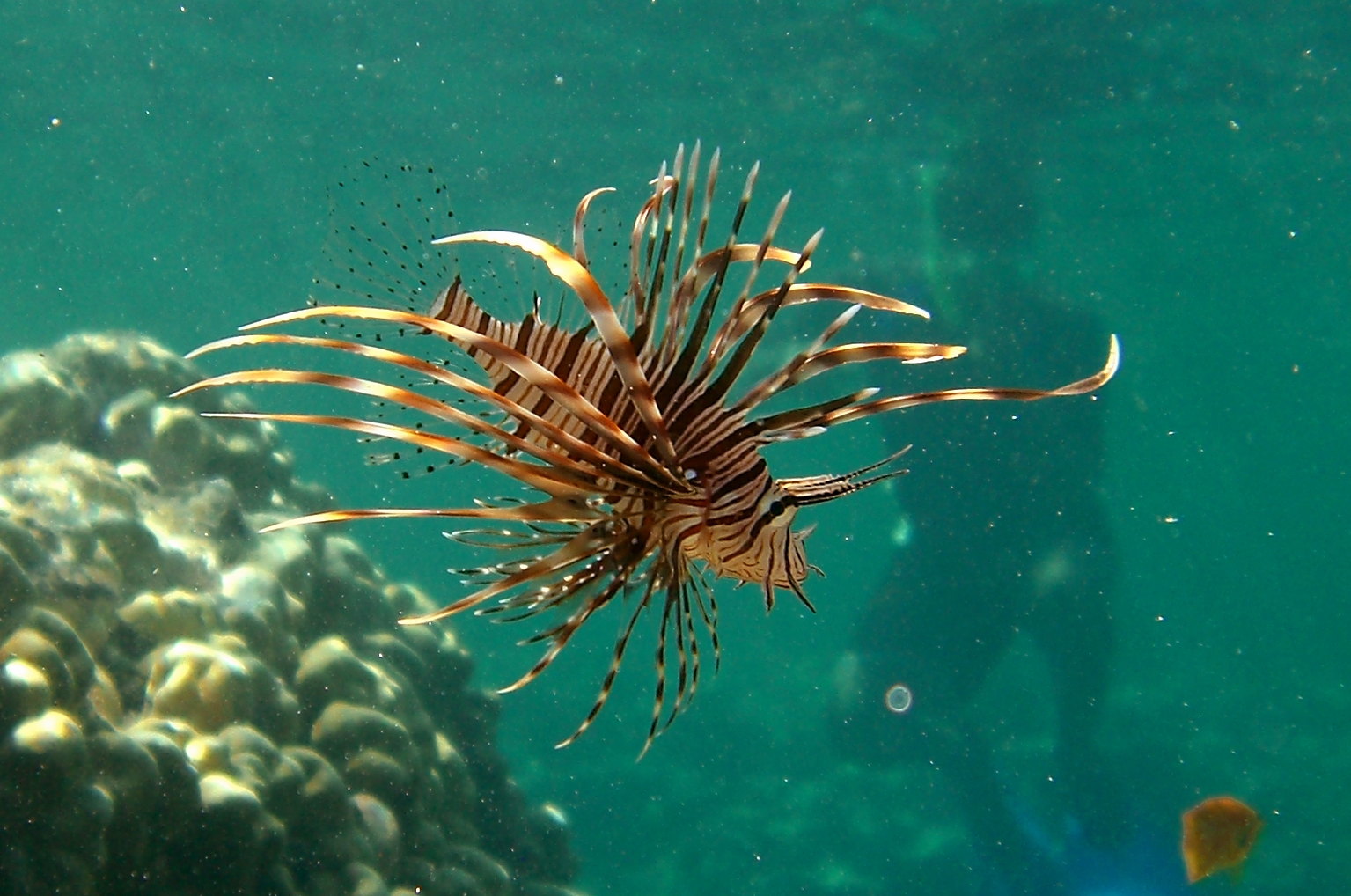No question about it, lionfish are nasty little boogers, especially since they are an invasive predator and threaten the native marine species and habitats of our Florida waters. Here’s what you need to know to help protect our waters.
Where are lionfish native?
Lionfish are native to the reefs of the south Pacific, Indian Oceans and the Red Sea.
Why are lionfish such a problem?
• They have few predators in Florida waters
• They spawn every 4 days up to 30,000 eggs each time.
• Because of the few numbers of predators the lionfish is free to prey on fish on the Florida reefs which severely damages the already delicate ecosystem.
Are lionfish poisonous?
Ummmm, just a little. Lionfish have 18 venomous spins: 13 located along the front of the dorsal fin, 2 on the pelvic fin, and 3 more, just for good measure, along the anal fin. You should avoid these at all cost, if you get stung by one, YOU WILL KNOW IT!! The large and featherlike pectoral fins and the tail fin do not contain venomous spines. (awe, isn’t that sweet)

Lion fish do not inject venom like a needle or fangs of a snake, but it’s more like rubbing poison ivy in an open wound. Each spine is grooved and covered in skin like tissue. During a sting those grooves open wounds allowing direct exposure to the venomous glandular tissue located along the spine.
What should I do if I am stung by a lionfish?
While you catch your breath in between the foul obscenities you may be yelling, immerse the wound in hot water for about 30-90 minutes. This will destroy the venom and cause immediate relief. It’s going to swell and hurt for a few days, that’ll give you time to hobble down to the dock and throw a line in.
If the area begins to look infected, you should seek medical attention.
What should I do if I see a lionfish?
FWC encourages you to safely remove any lionfish you encounter. If you are not able to safely remove it, you can at least report it. These kinds of local efforts from divers, anglers and commercial fisherman have proven to be quite effective in the effort to control this threat.
One thing that is illegal in state waters is to feeding lionfish to other predatory species.
Where should I report lionfish sightings?
 Reef Environmental Education Foundation (REEF) online reporting form.
Reef Environmental Education Foundation (REEF) online reporting form.
USGS’ Nonindigenous Aquatic Species (NAS) website.
Can lionfish be harvested?
ABSOLUTELY! There is no limits on method, size or bag limits. The goal is to get them out of the water. Lionfish can be speared, caught in hand-held nets or caught on hook and line. There are also no bag limits for commercial harvesting either.
What are the best methods to harvest lionfish?
Lionfish aren’t easily caught on hook and line, but are best taken by hand-held nest and spears. If spearing, you’ll probably find yourself near a reef (their favorite hunting ground) please be mindful and not damage the reef in your spearing effort. They also are taken as bycatch in commercial trap fisheries.
Is it okay to eat lionfish?
The actual flesh of a lionfish is not poisonous and is quite tasty. It is legal to eat lionfish and it is served  in many restaurants.
in many restaurants.
The U.S. Food and Drug Administration, the Florida Department of Agriculture and Consumer Services and the Florida Department of Health have not issued statements on eating lionfish with regards to your health (just thought we’d throw that disclaimer in there)
How big do lionfish get?
Lionfish can grow to 15 inches or more in areas where they are not indigenous, some as large as 18.5 inches.

